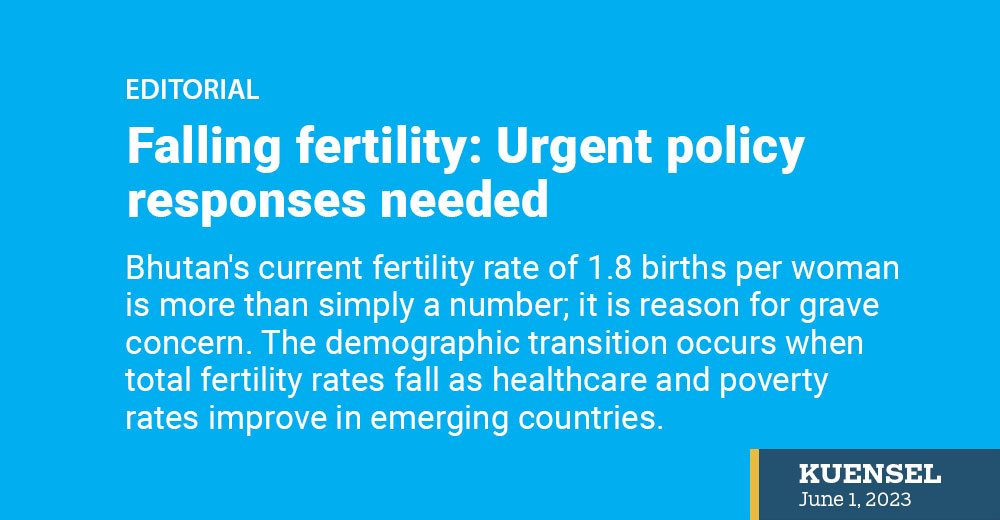Bhutan’s current fertility rate of 1.8 births per woman is more than simply a number; it is reason for grave concern. The demographic transition occurs when total fertility rates fall as healthcare and poverty rates improve in emerging countries. However, in order for Bhutan to sustain its population and secure a prosperous future, the government must act quickly and develop practical laws that allow young people to successfully balance work and family life.
Governments must establish an atmosphere in which women can balance job and family duties without sacrificing one for the other if we are to increase reproduction rates realistically. This can be accomplished through a number of pro-natalist activities that offer tangible assistance to families. Tax breaks for dependents, paid maternity leave funded by the national health insurance system, expanded parental leave programmes, tax breaks for larger families, and a baby bonus cash gift are all policies that can provide families with the financial assistance and incentives they need to consider having more children.
However, focusing simply on particular activities is insufficient. Comprehensive fertility programmes must also address employment security and social safety net access. Workers will be more confident in establishing a family if they know they will be able to meet the requirements of their children. Furthermore, expanding access to cheap housing can relieve stress on young families, allowing them to focus on raising children rather than worrying about housing instability.
But policy initiatives should not be limited to raising fertility rates. It is critical to take a broader perspective and implement policies that improve overall life satisfaction and quality for both parents and children. Investing in education, healthcare, and child development programmes can boost family well-being dramatically. Individuals will recognise that having children does not clash with their professional commitments if a seamless network of continuous assistance is established throughout childhood.
Scandinavian countries and France have shown that comprehensive family programmes may provide outstanding results. These countries have successfully implemented laws that encourage work-life balance, job stability, social safety nets, and cheap housing. Bhutan has the opportunity to follow in their footsteps and pave the road for a more affluent and sustainable future.
Addressing Bhutan’s declining birth rate requires immediate and meaningful policy solutions. By introducing pro-natalist policies, promoting work-family balance, ensuring job security and access to the social safety net, and improving the overall quality of life, Bhutan can reverse the downward trend. However, it is crucial to consider these interventions within the context of a larger support system.
By doing so, we can create an environment where people feel secure and encouraged to develop and nurture their families. Let us seize this opportunity to prioritise the well-being and future of our nation by actively pursuing policies that encourage a healthy and thriving population.


